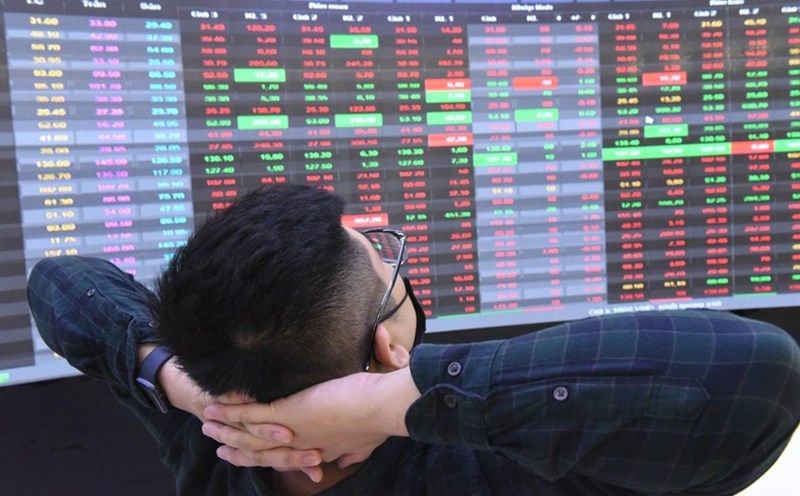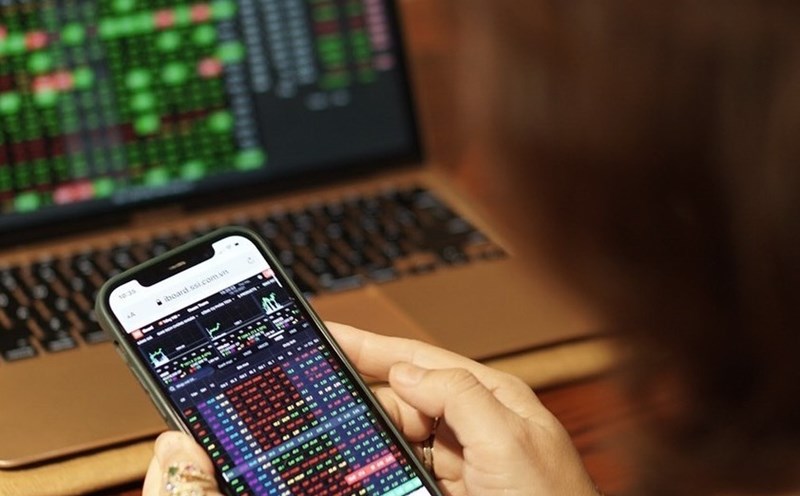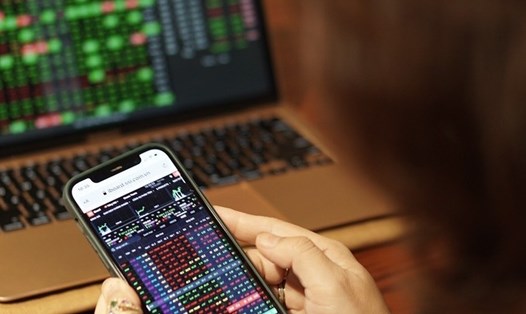The stock market has just gone through a period of strong fluctuations. Not only stocks of enterprises and industries directly related to tax policies are affected, but many stocks in other industries are also indirectly affected and have been sold strongly at floor prices for many sessions.
Although the stock market had quick recovery sessions afterwards, but for many investors, especially those who had previously used leverage (margin), the damage was still very large and "the way to the shore" was still quite far because the price reduction of many sessions leading to being sold by the securities company due to not guaranteeing the prescribed margin ratio as prescribed.
Ms. Hong An, an investor, shared that she fell into a cross-subsidy situation, causing heavy losses to her account. That was in the session on April 9, the market fell sharply, and her account was sold by a securities company. By the recovery session on April 10, many of the shares were not able to be sold due to the large supply and "clearing the buyers".
"That forces securities companies to transfer to selling other stocks in her account to ensure a safe ratio or collect debts. The damage was quite large," said Ms. An.
According to statistics, by the end of the first quarter of 2025, outstanding loans at securities companies are estimated at about VND 280,000 billion (equivalent to USD 11 billion), an increase of VND 35,000 billion compared to the end of 2024, and is a record high ever.
Of which, margin's outstanding debt is estimated at about VND 273,000 billion, an increase of VND 33,000 billion compared to the end of 2024, not including outstanding debt from "warehouses". This is also the highest figure in the history of the market.
In the whole market, 10 securities companies recorded outstanding loans of over VND 10,000 billion. Of which, 2 securities companies with outstanding debt of over 1 billion USD are TCBS and SSI. Notably, TCBS is the first securities company in history to have outstanding loans exceeding VND30,000 billion.
Similarly, in the sessions of the stock market that declined sharply due to the impact of US tariff policies in early April 2025, not only individual investors, but also leaders of some enterprises were sold by securities companies.
Fortunately for the market, right after historic declines, the stock market has had recovery sessions, the market has regained more than half of the lost points, helping margin's pressure gradually ease.
According to analysts, although the clearing orders from many securities companies were recorded in this adjustment, the market generally maintained good liquidity and showed bottom-fishing demand, especially in stocks with a solid foundation.
Dr. Nguyen Duy Phuong, Director of DG Capital Investment, said that the best support for the market in the most difficult time is that the investor and business leaders carry out better risk management, the market recovers, helping many accounts to escape the cross -prize scene. Although the mortgage activity has been suspended and the state is brought to balance, the Margin pressure with the market is still potential in the near future.
Recognizing that the story of tariffs is not a temporary event, but will have a long-term impact on the economy and business prospects of many businesses, Dr. Nguyen Duy Phuong said that at the present time, investors should restructure their portfolios.
Accordingly, when choosing to disburse at this time, investors still need to be cautious with industries directly affected by tariffs such as export enterprises to the US market, or enterprises in the supply chain for FDI enterprises (these are leading enterprises, when facing difficulties in export, they will reduce orders for enterprises supplying raw materials or processing).
If trading with the goal of restructuring the long-term portfolio, investors need to consider the option of sharply reducing the proportion of the above industries and increasing groups of defensive enterprises with stable cash flow and essential items for domestic life, Dr. Phuong shared.












